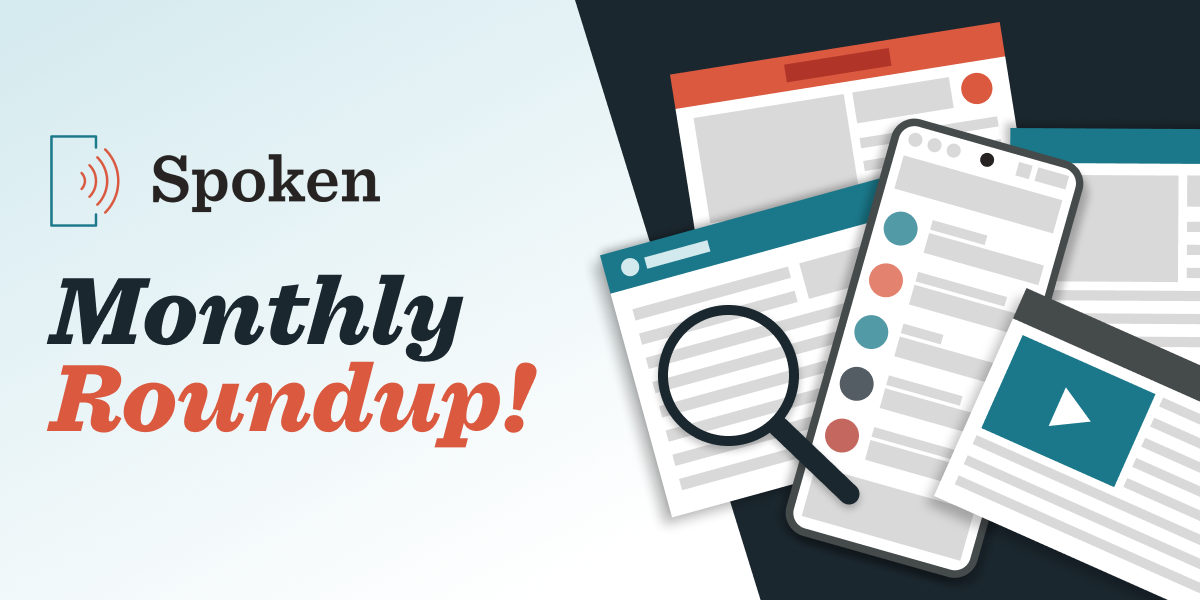May 2023 Content Roundup

We once again have plenty of fascinating content and news to share in the realms of autism, aphasia, communication, and assistive technology.
Autism Advocacy
Jordyn Zimmerman is Redefining Communication as a Nonspeaking Advocate for Disability Rights
In this interview, Jordyn Zimmerman—an emerging young leader in the autism community—discusses her experiences growing up in a system that undervalued and misunderstood her communication needs, and how she learned to use Augmentative and Alternative Communication (AAC). It’s an interesting article that sheds light on the importance of access to AAC as well as inclusivity.
After A Lifetime Of Guilt, Here’s Why I’m Finally Embracing Autistic Joy
This introspective piece reflects on the author’s journey towards accepting their own autism, including the challenges of being open about it and even struggles with internalized ableism. It is worth reading for anyone interested in gaining insight into the experiences of autistic individuals and the challenges they face in a society that often fails to understand and accommodate their needs.
Aphasia Resources
Self-Care Ideas From People With Aphasia
People with aphasia are often told to practice self-care to relieve or prevent stress. This article from the National Aphasia Association presents a long list of options for self-care, suggested by aphasia patients themselves. We encourage you to try something from this list when you feel stressed, whether you struggle with aphasia or not!
Group Singing Supports Communication in Aphasia
This article discusses a recent trial demonstrating the effectiveness of group singing in aphasia rehabilitation. The study concluded that group singing can support recovery and functioning in aphasia. We find it particularly interesting because of its accessibility as a recovery method.
Technology and Communication
AI-equipped Eyeglasses Read Silent Speech
Check this out: Cornell University has developed AI-powered eyeglasses, which can decipher unvocalized commands by detecting mouth movements. This has the potential to reduce the awkwardness of vocalizing commands in public and could also become a valuable tool for some nonverbal people.
AI Makes Non-Invasive Mind-Reading Possible by Turning Thoughts Into Text
This article discusses a new scientific development—the creation of a GPT-based model that is able to interpret a person’s brain activity via blood flow. While it cannot parse specific words that a subject might think of, it can understand the general meaning of a thought. This technology could have potential applications for patients with aphasia and other conditions that affect communication or speech.
Speech Spotlight
When Will Grogu Start Speaking? A Speech Pathologist’s Perspective
This article may sound silly, but it provides an interesting lens to learn about childhood speech development through. It explores the language development of the popular Star Wars character Grogu, also known as Baby Yoda, in the television series The Mandalorian. The article discusses Grogu’s language milestones, his expressive and receptive language skills, and his use of an AAC device.
Speech Language Pathologist Writes New Sensory Book Series for Children and Families
Speech Language Pathologist and AAC Consultant Elizabeth Eskow Bortz has written a series of children’s books that focus on teaching sensory strategies and calming techniques to help create communication opportunities in a natural way for children and adults. Learn more about the first book in the series, “Abby the Alligator Needs Hand Squeezes” here.
About Spoken
Spoken is an app that helps people with aphasia, nonverbal autism, and other speech and language disorders.
